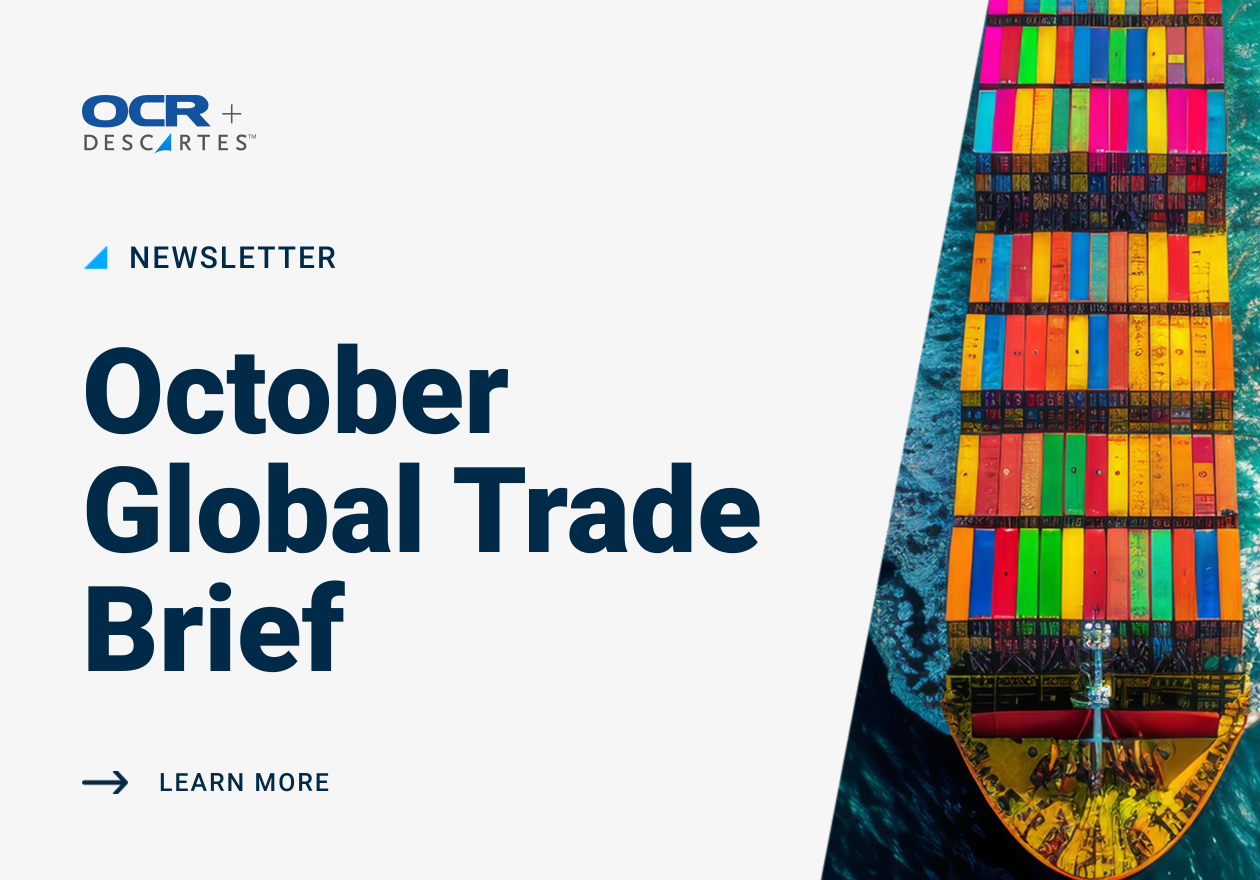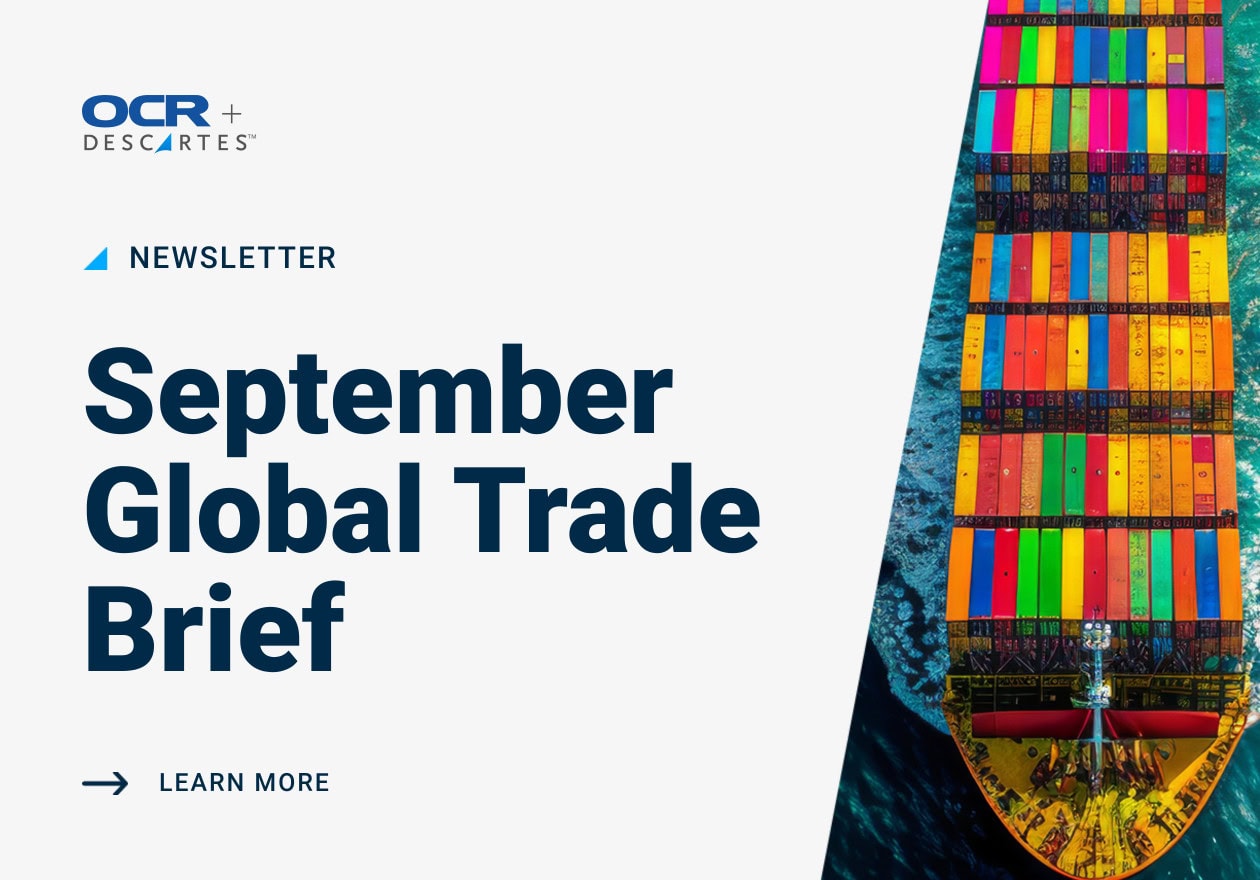APPLICABLE IMPORT DUTY ON VANS BOUGHT IN THE US AND CONVERTED TO MOTORHOMES IN CANADA
Facts:
Pleasure-Way Industries, Inc., bought 144 DaimlerChrysler AG “Sprinter” vans in the United States exported them to its manufacturing facility in Canada, where it converted them into its Plateau TS and Ascent TS model motorhomes. The conversion included installation of interior features such as fully plumbed kitchen and bathroom fixtures with freshwater and sewage tanks, water heaters, sleeping quarters, countertops with propane burners, microwave ovens, wall mounted televisions, and refrigerators. The conversion also included installation of exterior features such as large picture windows and porch lights, awnings, running boards, and exterior showers.
When Pleasure-Way imported the resulting motorhomes into the United States, it sought to avoid their being treated, for purposes of import duties, under the facially applicable provision of the Harmonized Tariff Schedule of the United States (HTSUS), namely, subheading 8703.33.00. It requested a ruling from the United States Bureau of Customs and Border Protection that the motorhomes should instead be classified under HTSUS subheading 9802.00.50, which provides favorable import-duty treatment to certain articles that, as relevant here, meet the requirements set forth in 19 C.F.R. § 181.64 (2017) for favorable treatment of imported articles that qualify as “goods re-entered after repair or alteration in Canada or Mexico” (emphasis added)
Conclusion:
Customs initially granted Pleasure-Way’s request, then changed its position and determined that the regulation does not apply to the motorhomes that resulted from Pleasure-Way’s conversion in Canada of the vans it acquired in the United States. Customs therefore assessed a 2.5% ad valorem import duty in accordance with HTSUS subheading 8703.33.00.
Customs denied Pleasure-Way’s protest, U.S. Court of International Trade court granted summary judgment against Pleasure-Way. Finally, they appealed to the Federal Circuit which today also affirmed the trade court’s judgment.
CONSOLIDATED OMNIBUS BUDGET RECONCILIATION ACT (COBRA) FEES TO BE ADJUSTED FOR INFLATION IN FISCAL YEAR 2018
Effective 1st January 2018, U.S. Customs and Border Protection (CBP) is adjusting certain customs user fees and limitations established by the Consolidated Omnibus Budget Reconciliation Act (COBRA) for Fiscal Year 2018 in accordance with the Fixing America’s Surface Transportation Act (FAST Act).
The Highlight being that the Merchandise Processing Fees has increased from $485 to $497.99 in addition to increase and changes in certain other fees associated with filing customs entries.
EXTENSION OF IN-BOND REGULATION ENFORCEMENT DATES
CBP will extend the time frame for initial implementation of these regulatory changes for all participants for six months. CBP Officers will continue to accept paper CBP Form 7512 and input the data on the trade’s behalf until July 2, 2018. On that date, paper forms will no longer be accepted for input into the ACE system by CBP Officers. The new implementation schedule will be as follows:
July 2, 2018 – Paper CBP Form 7512 will no longer be accepted by CBP for input into ACE. Electronic filing of new in-bond transactions will be the responsibility of the trade. Paper forms or other paper alternatives (screen prints or plain paper documents etc.) will be accepted as part of enforcement processes at the border or verification/audit operations such as warehouse withdrawals, FTZ exports and transfers or vessel/aircraft supply operations where additional information is required on paper forms that is not provided for electronically.
August 6, 2018 – Electronic reporting of all transactions will be mandatory; CBP will no longer accept paper copies of the CBPF 7512 to perform arrival and export functionality. These functions will be the requirement of the carrier. Electronic reporting will be mandatory. In addition, electronic reporting of diversion to a port other than reported on the original in-bond will be required. An ACE edit will reject arrival if not performed. Electronic reporting of bonded cargo location (FIRMS code) will be required. An ACE edit will reject arrival if not provided.
At this time, no date is set for implementation of the provision requiring the 6 -digit Harmonized Tariff Schedule number requirement for Immediate Transportation movements.
EFFECTIVE DECEMBER 31ST ELECTRONIC EXPORT INFORMATION REQUIREMENTS FOR EPA
Starting December 31, 2017, exporters of RCRA (Resource Conservation and Recovery Act)
manifested hazardous waste for recycling or disposal, spent lead-acid batteries (SLABs) being shipped for recovery of lead, and universal waste (UW) being shipped for recycling or disposal must comply with filing EPA-specific information as part of their Electronic Export Information (EEI) filing in the Automated Export System (AES) per EPA regulations in 40 CFR 263.83(a)(6)(ii). Exporters of whole or broken cathode ray tubes (CRTs) being shipped for recycling must similarly comply with filing EPA-specific information in AES per 40 CFR 261.39(a)(5)(v)(B) starting on that date. Both EPA regulations require filing the EPA-specific items in the EEI, along with the other information required under 15 CFR 30.6.
QUARTERLY IRS INTEREST RATES USED IN CALCULATING INTEREST ON OVERDUE ACCOUNTS AND REFUNDS ON CUSTOMS DUTIES
CBP publishes a notice advising the public that the quarterly Internal Revenue Service interest rates used to calculate interest on overdue accounts (underpayments) and refunds (overpayments) of customs duties will remain the same from the previous quarter. For the calendar quarter beginning January 1, 2018, the interest rates for overpayments will be 3 percent for corporations and 4 percent for non-corporations,
and the interest rate for underpayments will be 4 percent for both corporations and non-corporations. This notice is published for the convenience of the importing public and U.S. Customs and Border Protection personnel.
CASE STUDIES
DENTSPLY SIRONA INC. SETTLES POTENTIAL CIVIL LIABILITY FOR APPARENT VIOLATIONS OF THE IRANIAN TRANSACTIONS AND SANCTIONS REGULATIONS
Facts:
Between on or about November 26, 2009 and July 5, 2012 DENTSPLY SIRONA INC. (“DSI”), a U.S. company incorporated in Delaware, the successor in interest to DENTSPLY International Inc (“DII”). (“DII” and, together with DSI, “DENTSPLY”) subsidiaries UK International (“UKI”) and DS Healthcare Inc. (d.b.a. Sultan Healthcare) (“Sultan”), exported 37 shipments of dental equipment and supplies from the United States, to distributors in third-countries, with knowledge or reason to know that the goods were ultimately destined for Iran. This amounted to 37 apparent violations of § 560.204 of the Iranian Transactions and Sanctions Regulations, 31 C.F.R. Part 560 (ITSR).
Conclusion:
OFAC determined that DII did not voluntarily disclose the apparent violations and that the apparent violations constitute a non-egregious case. The statutory maximum penalty amount for the apparent violations is $9,551,082, and the base penalty amount for the apparent violations is $1,695,500. DII agreed to pay $1,220,400 to settle its potential civil liability
ITALIAN NATIONAL PLEADS GUILTY TO ILLEGALLY EXPORTING AND ATTEMPTING TO EXPORT MILITARY TECHNOLOGY
Facts:
Between June 2013 and May 2017, Giovanni Zannoni, 35, of Gavorrano, Italy illegally exported and attempted to export night vision goggles and assault rifle components designated as defense articles on the United States Munitions List. The export of sensitive night vision equipment and assault rifle components requires a license from the United States Department of State. The Department of State has placed restrictions on the export of items that it has determined could make a significant contribution to the military potential and weapons proliferation of other nations and that could be detrimental to the foreign policy and national security of the United States.
Conclusion:
Zannoni, has pleaded guilty to illegally exporting and attempting to export night vision equipment and assault rifle components. As part of his plea, Zannoni agreed to forfeit $436,673.73, in addition to the dozens of gun parts and night vision and thermal imaging devices recovered by the government in connection with this prosecution.



